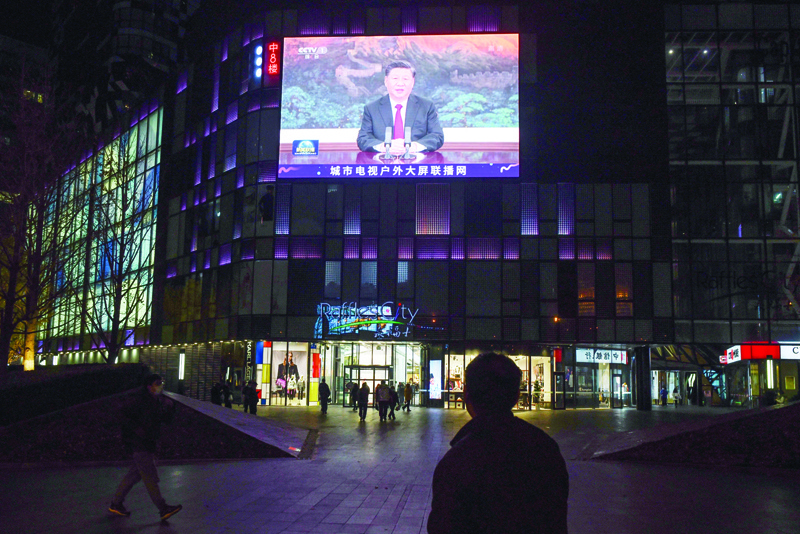
KUALA LUMPUR: President Xi Jinping hailed China as the pivot point for global free trade yesterday, vowing to keep its "super-sized" economy open for business and warning against protectionism as the world battles the Covid-19 pandemic. Buoyed by the signing of the world's largest trade pact over the weekend, Xi said the Asia-Pacific is the "forerunner driving global growth" in a world hit by "multiple challenges."
He vowed "openness" to trade and rejected any possibility of the "decoupling" of China's economy, in his only nod to the hostile trade policy of US President Donald Trump's administration, which has battered China with tariffs and tech restrictions. Xi was speaking at the Asia-Pacific Economic Cooperation (APEC) forum, held online this year because of the pandemic, which brings together 21 Pacific Rim countries, accounting for about 60 percent of global GDP.
It was not immediately clear if Trump, wounded by his election loss to Joe Biden, would take part in the two-day gathering or send a high-level delegate in his place. In a speech that veered into triumphalism over China's economic "resilience and vitality" in bouncing back from the virus, which first emerged in the central city of Wuhan, Xi warned countries who insist on trade barriers would suffer self-inflicted wounds.
"Openness enables a country to move forward while seclusion holds it back," he said. "China will actively cooperate with all countries, regions and enterprises that want to do so. We will continue to hold high the banner of openness and co-operation."
Trade agenda
But Xi's rhetoric may raise eyebrows in capitals where China has either restricted trade or used its giant economy as a bargaining chip in wider geopolitical disputes. Australian exports of beef, wine and barley to China-their biggest market-have been restricted, as a diplomatic rumble over the origins of the pandemic as well as accusations of espionage hammer relations.
The APEC summit comes a week after China and 14 other Asia-Pacific countries signed the world's largest free-trade deal. The Regional Comprehensive Economic Partnership (RCEP), which excludes the US, is viewed as a major coup for China and further evidence that Beijing is setting the agenda for global commerce as Washington retreats. RCEP's rival was the Trans-Pacific Partnership-championed by former US president Barack Obama-but Trump withdrew from it and the pact has now been replaced by a watered-down alternative that the United States has not joined.
Xi had no direct words for President-elect Biden, whose ascension to office next year, while still clouded by Trump's refusal to concede defeat, is expected to see a more nuanced extension of Washington's current China policy. Biden has been strident on China's human rights record, from its treatment of Uighur Muslims in the restive Xinjiang region to Hong Kong's democracy movement.
But some at the APEC forum were optimistic the incoming US president would engage more with international groupings. "I think that (a Biden administration) will be more supportive of the WTO (World Trade Organization), and of APEC," Singaporean Prime Minister Lee Hsien Loong said.
"I hope that there will be a more constructive approach-one where countries work together, rather than against one another." The US turned away from multilateral bodies during Trump's tenure as he pushed his "America First" agenda, while APEC gatherings were overshadowed by US-China trade tensions. - AFP

